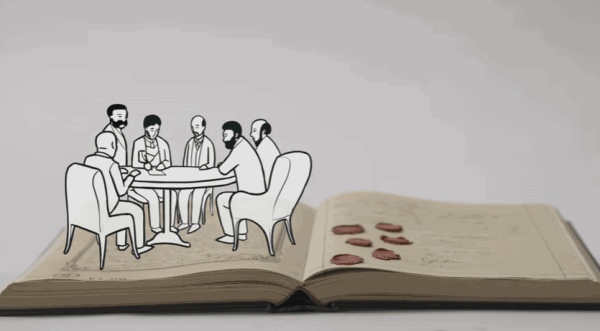When watching or reading the news it isn’t hard to see the impacts of war and armed conflicts, seeing this kind of suffering and destruction can lead us to ask if there are any rules or limits to violent armed conflict – that’s where
International Humanitarian Law (IHL) comes in.

IHL exists to protect those who are not, or who are no longer, participating in fighting and restricts the methods and weapons used in war. The International Committee of the Red Cross (ICRC) acts as the guardian of IHL.Part of this role involves educating States, members of militaries, lawmakers and citizens about the principles of IHL. The Canadian Red Cross is actively involved in educating about IHL.
In 2016, the Canadian Red Cross published
Canada & Conflict: A Humanitarian Perspective, an educational resource that explores the rules of IHL, Canada’s contribution to IHL, and gives students insight into wartime decision-making.
Canada & Conflict provides teachers with real historical examples that help inform discussions and classroom activities on such themes as refugees and forced migration, gender-based violence, neglected crises and attacks on health facilities and other war crimes.
Canada & Conflict is made up of six modules that explore the nature of humanitarian acts and the roles of bystanders; the need to regulate armed conflicts and the basic rules of IHL; the implementation of IHL, the question of responsibility, the complexities of armed conflict; the development of international justice; the need for, and the requirements of, humanitarian action in times of armed conflict; the importance of social action and youth engagement.
So why is it important to teach young people about IHL?
Here are five reasons, according to
Canada & Conflict:
- Young people are increasingly affected by armed conflicts around the world
- Many societies appear to becoming more prone to various forms of violence
- Young people are exposed to media coverage of violence, as well as violence in entertainment, in greater numbers than ever – this can desensitize them to the effects of violence
- In times of social and political tension, programs that focus on respect for human dignity may have an indirect pacifying effect
- As a State that is party to the Geneva Conventions, Canada has an obligation to spread knowledge of IHL as widely as possible - this includes young people
Canada & Conflict’s goal is to help young people understand, respect, and use the principles of humanity in their daily lives, and to help develop social awareness and civic responsibility.
Learn more about
Canada & Conflict on our
website.